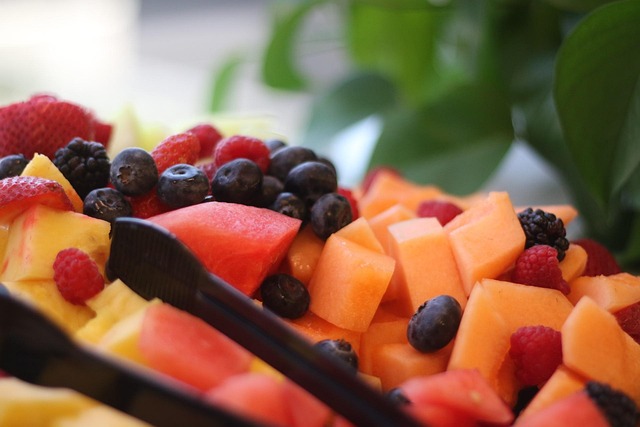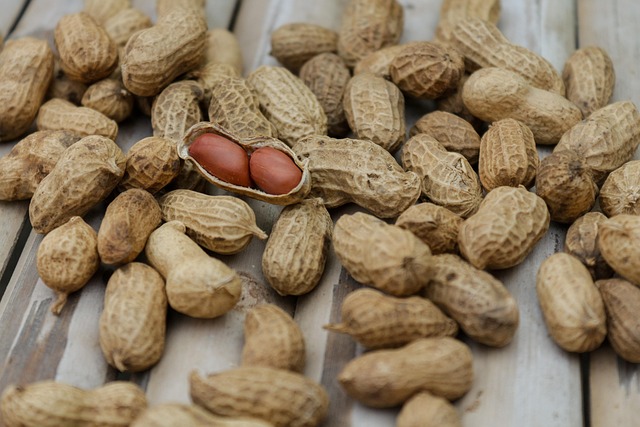Watermelon, with its bright red flesh and sweet, juicy flavor, is more than just a summertime treat. Its high water content—over ninety percent—makes it an ideal food for keeping the body hydrated. When you consume watermelon, the water you ingest is absorbed quickly, replenishing fluids lost through sweat, breathing, and everyday metabolic processes. This natural hydration boost helps maintain the balance of electrolytes, supports circulation, and keeps skin plump and healthy.
Nutrition Profile: A Rainbow of Micronutrients
Beyond hydration, watermelon is a nutrient-dense fruit packed with vitamins, minerals, and phytonutrients that support overall health. A typical serving of one cup (about 152 grams) offers the following key benefits:
- Vitamin C – an antioxidant that protects cells and supports immune function.
- Vitamin A (from beta‑carotene) – essential for vision, skin integrity, and immune health.
- Potassium – helps regulate blood pressure and muscle function.
- Lycopene – a powerful antioxidant linked to reduced risk of certain cancers and heart disease.
- Antioxidant flavonoids and phenolic acids – contribute to anti‑inflammatory and cardiovascular benefits.
When eaten in moderation, watermelon can contribute to a balanced diet without adding excessive calories.
Heart Health and Blood Pressure Management
The potassium content in watermelon plays a critical role in heart health by balancing sodium levels in the bloodstream. A diet rich in potassium can lower the risk of hypertension, reducing strain on arteries and the heart muscle. In addition, the lycopene present in watermelon has been studied for its ability to improve blood vessel function and reduce oxidative stress, both of which are key factors in maintaining cardiovascular wellness.
“Regular consumption of lycopene‑rich foods can improve endothelial function and lower systolic blood pressure,” says a review published in the Journal of Nutrition.
Hydration for Active Lifestyles
For athletes and fitness enthusiasts, maintaining optimal hydration is essential for performance and recovery. Watermelon’s high water content and electrolytes make it an excellent post‑workout snack. Studies indicate that the sugar and electrolytes in watermelon can aid in restoring glycogen levels, accelerating muscle recovery, and preventing cramps. A small, convenient way to hydrate after a run, bike ride, or yoga session is to snack on a handful of diced watermelon or blend it into a refreshing smoothie.
Skin Health and Anti‑Aging Properties
Beauty starts from within, and watermelon offers several components that support skin vitality. The vitamin C in watermelon helps collagen synthesis, which maintains skin firmness and elasticity. Lycopene’s antioxidant activity protects skin cells from UV damage and reduces inflammation. Additionally, the natural sugars provide the energy necessary for the skin’s repair processes. Consuming watermelon regularly can therefore contribute to clearer, more resilient skin.
Weight Management and Satiety
Watermelon’s low calorie density (about 46 calories per cup) and high fiber content can aid in weight control. The fiber slows digestion, which helps regulate blood sugar spikes and promotes a feeling of fullness. This makes watermelon an excellent choice for a healthy snack that satisfies sweet cravings without the added calories associated with processed desserts. Integrating watermelon into meals or snacks can reduce the tendency to overeat.
Digestive Health Benefits
Besides fiber, watermelon contains a small amount of magnesium, which assists in muscle relaxation and digestive tract movement. By promoting regularity, watermelon helps prevent constipation and supports a healthy gut microbiome. A well‑functioning digestive system is foundational for nutrient absorption and overall well‑being.
Creative Ways to Include Watermelon in a Healthy Diet
While the classic way to enjoy watermelon is simply sliced, there are many creative methods to incorporate it into everyday meals. Below are some ideas that maintain the fruit’s nutritional integrity while adding variety to your plate:
- **Fresh salad** – Combine diced watermelon with spinach, feta cheese, and a light citrus dressing for a refreshing lunch.
- **Smoothies** – Blend watermelon with coconut water, a splash of lime, and a handful of mint for a hydrating beverage.
- **Grilled watermelon** – Slice thick wedges, brush with olive oil, and grill for a caramelized side dish that pairs well with grilled chicken or fish.
- **Cold soups** – Puree watermelon with cucumber, yogurt, and dill to create a chilled soup that’s perfect for hot days.
- **Cocktail or mocktail base** – Muddle watermelon with fresh basil and sparkling water for a low‑calorie, flavorful drink.
Seasonal Availability and Sustainable Choices
Watermelon is a seasonal fruit, typically at its peak during late spring and early summer. Choosing locally grown, organic varieties not only ensures peak freshness but also reduces the environmental footprint associated with long‑distance transportation. When selecting watermelon, look for a uniform shape, a bright green rind, and a firm texture. A ripe watermelon will have a deep, musky aroma near the stem end and a hollow sound when tapped.
Storage Tips for Maximum Freshness
Whole, uncut watermelon can be stored at room temperature for a few days. Once sliced, keep it in an airtight container in the refrigerator for up to three days. If you wish to extend its shelf life, freeze watermelon cubes in a single layer on a baking sheet before transferring them to a freezer bag. This method preserves texture and flavor, allowing you to enjoy a chilled treat year‑round.
Myth‑Busting: Common Misconceptions About Watermelon
There are several myths that circulate about watermelon’s health benefits. Let’s clarify these points:
- Myth: Watermelon is high in sugar. While it does contain natural sugars, the overall sugar content is moderate compared to other fruits, and the high fiber content helps moderate blood glucose spikes.
- Myth: It’s only for weight loss. Watermelon can support weight management due to its low calorie density, but it should be part of a balanced diet rather than the sole focus.
- Myth: Watermelon is not nutrient‑dense. It actually contains essential vitamins, minerals, and antioxidants that contribute to various bodily functions.
Practical Takeaway: A Balanced Lifestyle
Incorporating watermelon into a healthy lifestyle is simple and enjoyable. Pair it with protein sources like grilled chicken or beans, add colorful vegetables, and maintain adequate hydration throughout the day. Remember that no single food can guarantee health; a diverse diet, regular physical activity, sufficient sleep, and mindful stress management are all pillars of well‑being. Watermelon is one flavorful, hydrating, and nutritious piece of that larger puzzle.
Conclusion: A Sweet Ally for Healthful Living
From its hydrating properties to its rich nutrient profile, watermelon stands out as a versatile fruit that supports heart health, skin vitality, digestive wellness, and weight management. Its natural sweetness makes it a tasty addition to salads, smoothies, and desserts, while its low calorie content helps maintain a balanced diet. By choosing watermelon as part of a varied, plant‑rich menu, you can enjoy a refreshing treat that contributes meaningfully to a healthy lifestyle.




